The Beginner’s Guide: Denis Villeneuve, Director
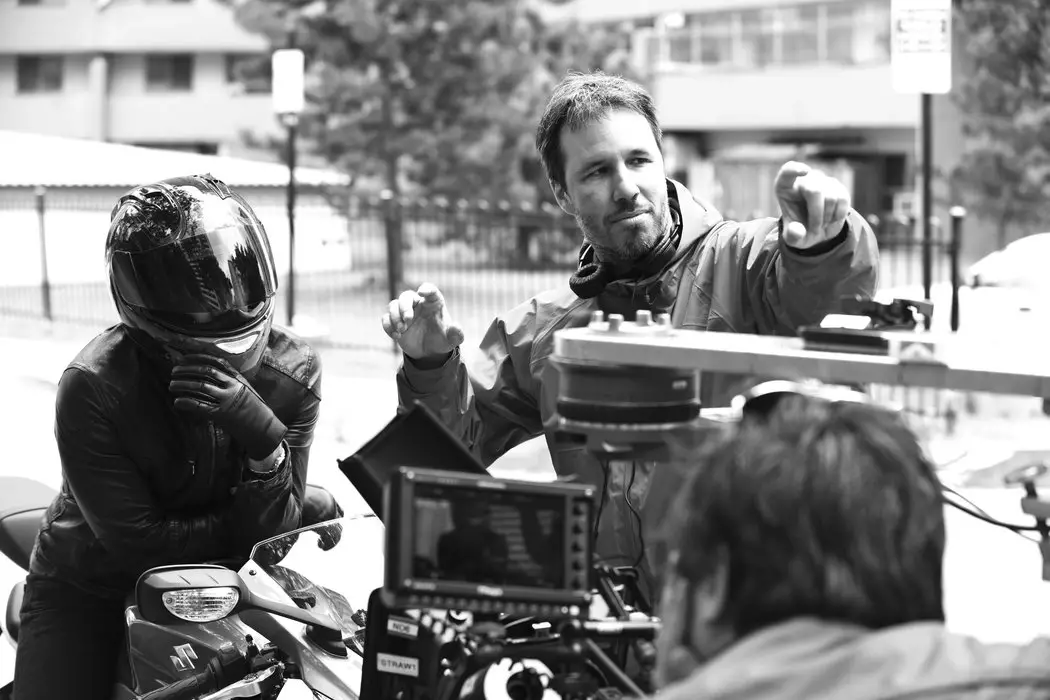
From a young age, I was drawn to films especially…
As a Canadian, I’ve recently made it a duty to watch as much Canadian content as I can. Being a French Canadian, I’ve also made it my duty to watch more French Canadian films. The one director that is quickly making quite a name for himself is none other than director Denis Villeneuve. He recently received an Academy Award nomination for Best Director for Arrival, which also received seven other Oscar nominations. You may have just heard of him now, or you may never have heard of him, and that is fantastic. As his next movie will be Blade Runner 2049, I have prepared a list starting with Villeneuve‘s most accessible movie all the way to his least accessible movie.
The Canadian is particularly interested in a person’s psyche, and his movies all tackle this subject. His exploration of human psychology is done in relation to grief. What seems to be a concern for most of his movies is also his strongest and most prevailing theme.
His earlier movies focused more on Canadian culture and, most specifically, Quebec culture. Half of his filmography are French films and are very much rooted in Quebec history, which is a common trend for Quebec directors. Nevertheless, for this Beginner’s Guide, I’m going to start with Denis Villeneuve‘s most successful and most recent film…
Arrival (2016)
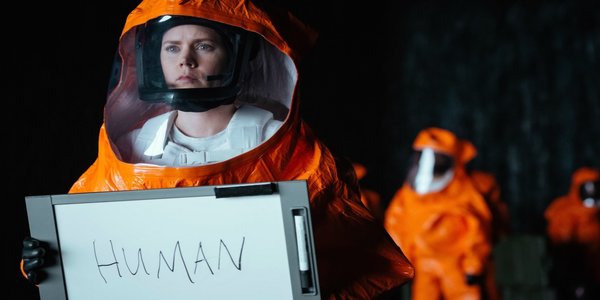
It’s easy to say that, for any director, you should start with his Oscar-nominated film. However, for Villeneuve, your first movie should very much be Arrival. Not only is this a clear indication of what’s to come, but it serves as the very first movie where he establishes a continuing style. His alien design is very “Villeneuvian,” a term which you will surely hear more of in the future.
Arrival established a lot of firsts for the director. His dive into sci-fi was very much a surprise. If you look down this list, you’ll see mostly psychological thrillers set in the real world with very broken people. However, Arrival changed that while still keeping Villeneuve‘s essence. There still exists a broken character forced to contend with life-changing questions, but this is set in a world that has contact with aliens for the first time. It’s a story of how Amy Adams‘ Dr. Louise Banks becomes able to understand the alien’s otherworldly language and how her findings impact both herself and those around her. It’s this science fiction aspect that paved the way for the Blade Runner sequel and the recently announced Dune remake.
Prisoners (2013)
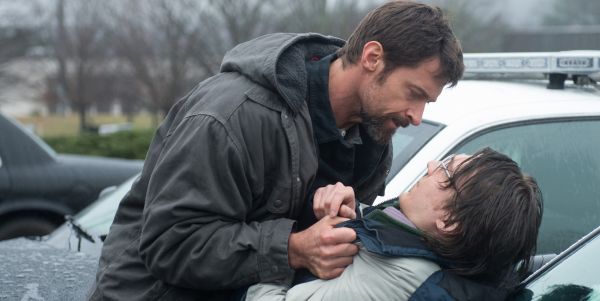
Before Arrival, there was this tiny gem. Prisoners was Villeneuve‘s first English-language movie, and while he could have sold out, the Canadian director mastered what he did best: psychological thrillers. Prisoners is very much a human story that you never want to be real. Stars like Hugh Jackman and Jake Gyllenhaal brought audiences to the theaters, but what made them stay was the gripping, dark story and Denis Villeneuve‘s excellent direction.
While Villeneuve did play it smart, he never played it safe. Prisoners is a slow-burn filled with gruesome moments. It follows the life of Hugh Jackman‘s character after the kidnapping of his daughters. If it seems familiar, it’s because it is. However, Villeneuve brings his exploration of grief and pain of loss to his characters, ultimately asking “How far will you go for the ones you love?” It’s a fair question and one that his characters face many times in the movie. For his first English-language film, Denis Villeneuve definitely showed the whole world what he is capable of. If you are still itching for a film similar to Arrival, Prisoners is a great follow-up with similar yet darker themes.
Sicario (2015)
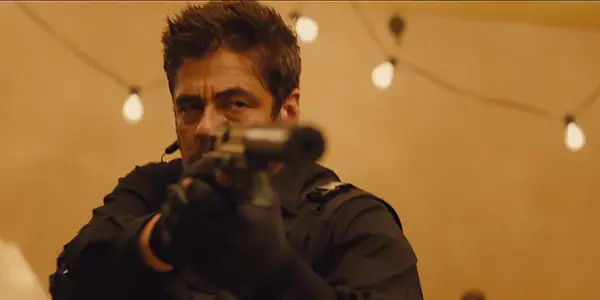
Speaking of dark, I have always found Sicario to be Villeneuve at his most unapologetic. This tale of a Mexican drug cartel showcases just how despicable humans can be and what it takes to deal with them. The whole concept is perfectly shot thanks to Roger Deakins, and our main character is brought to life by Emily Blunt. Sicario is a bit different than what Denis Villeneuve is usually known for, but similar themes are explored. What makes this movie shine is that it isn’t afraid to get down and dirty. You’ll probably feel disgusted by the end, and it will undeniably make you question humanity.
If you are not used to heavy, dark movies, then it may turn you off. There isn’t much comic relief to be found here, nor are there cute moments. Sicario starts off dark, and it only builds on from there. It makes you feel vulnerable and hopeless just like it does to its characters. Of course, ironically, this is why Sicario shines. It is its ability to manipulate its viewers and force them to confront their greatest fears.
Enemy (2013)
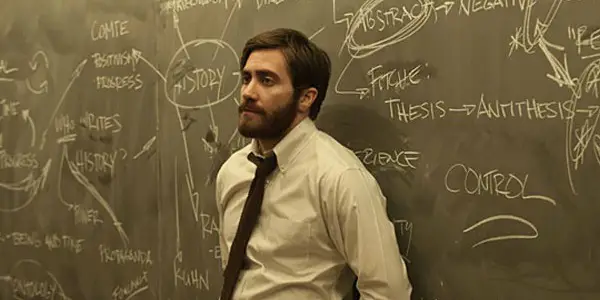
Teaming up with Jake Gyllenhaal, Villeneuve created his weirdest movie yet. If it’s any indication, I have watched Enemy five times, and I still haven’t understood everything. However, much like Villeneuve‘s other movies, this movie deals with self-perception and loyalty. While it may be the oddity in his filmography, Enemy is Denis Villeneuve‘s most intricate movie. If you thought Arrival was complicated, you haven’t seen anything yet. However, Villeneuve never gets overwhelmed by the plot. He stays on track, and makes everything fit into place.
It will take multiple viewings to fully comprehend all the tiny details, and that just shows how a terrific director he is. This isn’t a big blockbuster like Arrival. It relishes the small scale, and he runs with it. The biggest strength of this movie is the atmosphere he’s able to create. Enemy may be small, but it packs a big punch.
Incendies (2010)
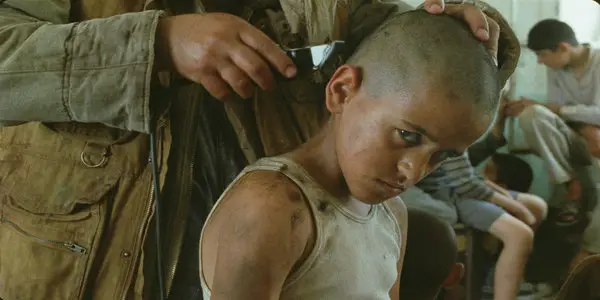
While Prisoners put Villeneuve on the international stage, Incendies is the film that made him known to a Canadian audience. It went on to win eight Genie Awards and was nominated for Best Foreign Language Film at the Academy Awards. Many have noted that this movie shines exclusively because of Villeneuve‘s direction and André Turpin‘s cinematography. Its source material isn’t the most interesting, but Villeneuve was able to deliver an important message of immigration and the importance of human rights.
Incendies is probably more important now than it was back in 2010, as it follows a Canadian immigrant’s harrowing story through flashbacks. It is a powerful statement about how we shouldn’t be so quick to judge people’s religious views and how, by doing so, we create more bad in the world than good.
Polytechnique (2009)
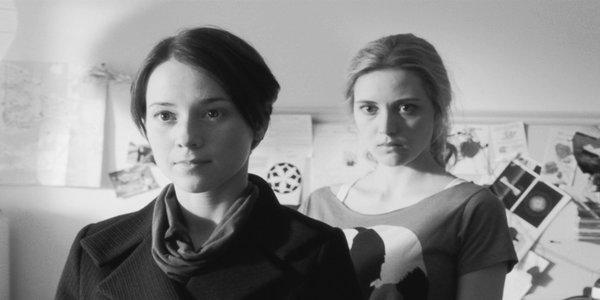
Shot in black and white, Polytechnique is probably Denis Villeneuve‘s saddest movie yet. It’s based on the École Polytechnique massacre where a gunman shot and killed fourteen women. His motive was that of anti-feminism and misogyny as he claimed that feminism ruined his life. The gunman did not believe that women should be working in engineering and had made a list of women whom he had identified as being feminist. It is still considered one of the biggest mass shootings in Canadian history.
Certainly, Villeneuve didn’t have the easiest of tasks adapting such a tragedy for the screen. However, he succeeds on multiple levels. The emotion that he is able to convey is outstanding, and he is extremely careful yet extremely ambitious in his depiction of violence. Undeniably, the film was controversial upon its release, with some citing that it “glorified violence” and was an easy way to cash in on a tragedy. Although these critiques are valid, Polytechnique still stands as a powerful film against misogyny and violence against women.
Conclusion
Denis Villeneuve is still progressing in his career. There is more to come, and there is more I haven’t covered. His first film Un 32 août sur terre, Maelström and his fabulous short film Next Floor (which you can find here) are some of the films that you can check out after seeing these six films.
Villeneuve will undeniably continue to impact Hollywood. His films are important conversation starters, and he continues to bring complex female leads to an institution that greatly needs them. His ambitious nature and his ability to tackle difficult subject matter makes him one to watch, for sure. It will be interesting to keep an eye on him as he transitions to an even grander style of filmmaking. He is known for being quite stubborn and doing what he wants. I would say that such a disposition only makes him a better director.
What are your thoughts about Denis Villeneuve’s gradual move towards Hollywood success? Which phase of his career do you prefer?
Does content like this matter to you?
Become a Member and support film journalism. Unlock access to all of Film Inquiry`s great articles. Join a community of like-minded readers who are passionate about cinema - get access to our private members Network, give back to independent filmmakers, and more.
From a young age, I was drawn to films especially the horror and psychological thriller genre. Living in a small town in New Brunswick, Canada, I later fell in love with reviewing and writing about movies. I like to bring my background in Psychology and Religious Studies to my writing and film reviews. Apart from films, I enjoy writing and drawing. However, nothing makes me happier than celebrating Halloween and playing tennis.













